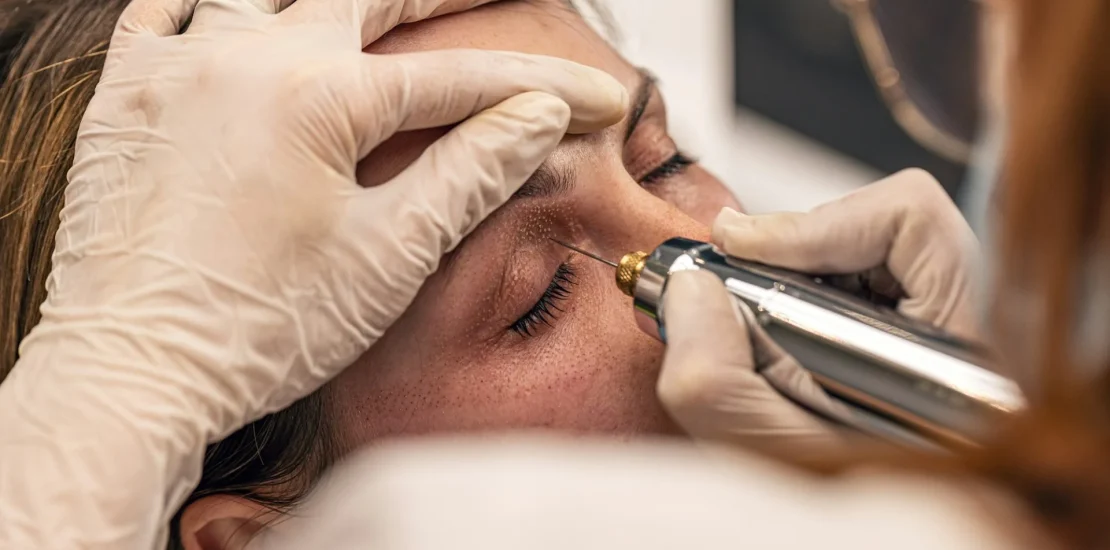-
Preparation
Before the procedure begins, the skin is thoroughly cleansed and a topical numbing cream may be applied to minimize discomfort during treatment.
-
Application of Plasma Energy
The fibroblast device emits a small, targeted arc of plasma energy, which is directed at specific areas of the skin that require treatment. The plasma energy creates tiny micro-injuries in the skin’s surface, without causing damage to the surrounding tissues.
-
Stimulation of Fibroblasts
The controlled micro-injuries trigger the body’s natural healing process, prompting the activation of fibroblasts—the cells responsible for producing collagen and elastin. As the skin heals, new collagen and elastin fibers are formed, resulting in firmer, tighter, and more youthful-looking skin.
-
Tightening and Rejuvenation
Over time, the increased collagen and elastin production lead to visible improvements in skin texture, tone, and laxity. Wrinkles and fine lines are reduced, sagging skin is tightened, and overall complexion is rejuvenated, leaving you with a smoother, more youthful appearance.
-
Downtime and Recovery
Following the procedure, the treated area may appear red and swollen, similar to a sunburn. This typically subsides within a few days, and the skin will begin to flake and peel as it undergoes the healing process. It’s important to follow post-care instructions provided by your skincare professional to ensure optimal results and minimize the risk of complications. Fibroblast skin treatments are commonly used to address a variety of skin concerns, including wrinkles, fine lines, skin laxity, acne scars, stretch marks, and uneven texture. With its non-invasive nature and minimal downtime, fibroblast therapy offers a safe and effective option for those seeking to rejuvenate their skin and achieve a more youthful appearance without the need for surgery.










